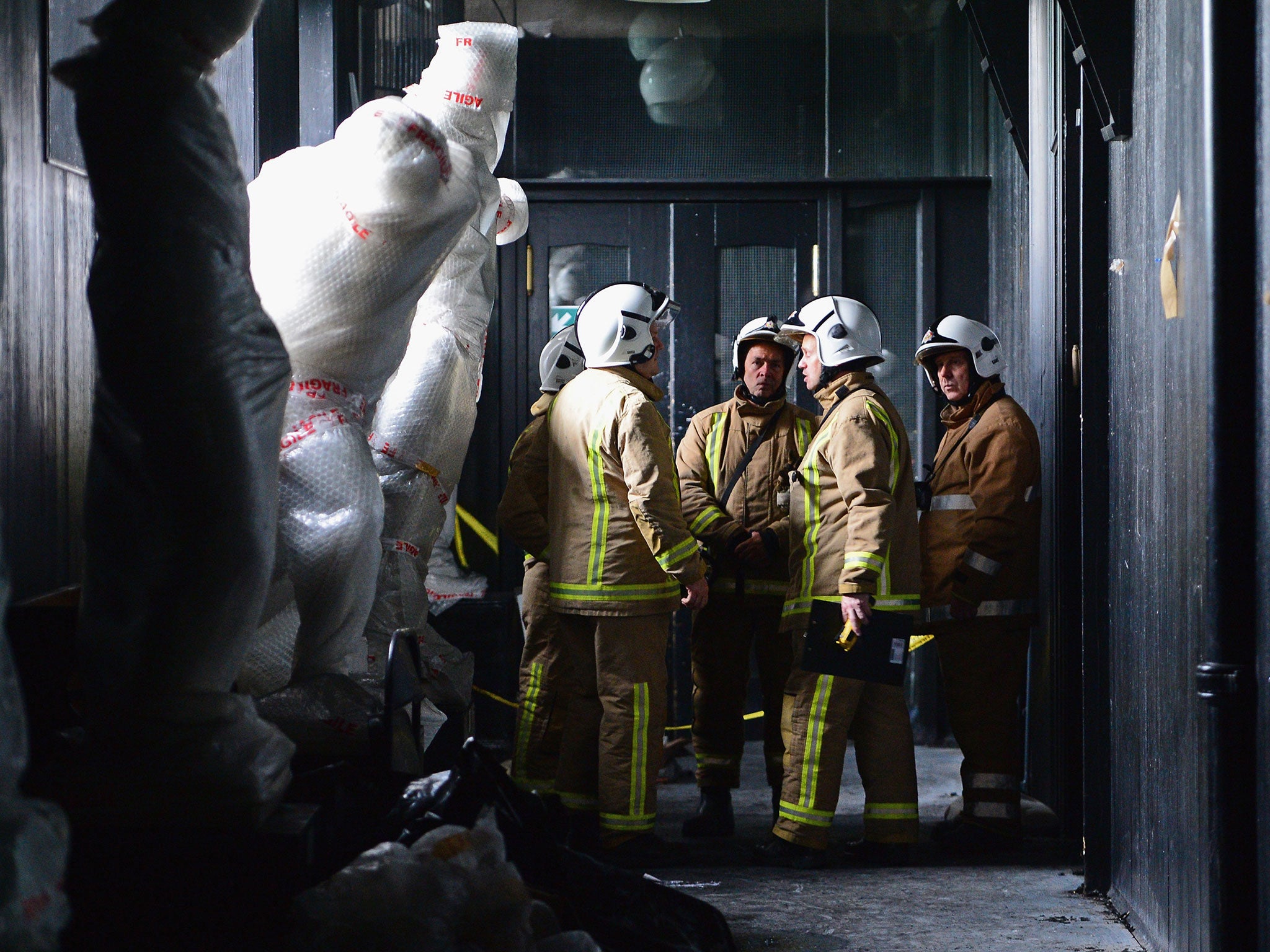Fire brigades could be run like John Lewis if Tories win next election
The Government believes that mutualisation is the way forward, but unions say the effect would be privatisation by the back door

Britain's network of fire brigades could be turned into John Lewis-style employee-owned "mutual" companies if the Conservatives win the next election.
Under the plans, the Government would change the law to allow fire and rescue services to set themselves up as independent social enterprise companies outside the public sector. They would then be contracted by local fire authorities to provide geographical fire cover – while also being free to sell their services to the private sector.
Ministers and a number of fire chiefs believe that mutualisation is the answer to off-setting further swingeing budget cuts over the next five years.
But unions claim the move is simply back-door privatisation and have pledged to fight the plan. If it does go ahead, it would be the most radical and eye-catching element of the Government's mutualisation programme being driven by the Cabinet Office minister, Francis Maude.
Earlier this year, the Government announced its intention to allow parts of the NHS to set up as mutuals, believing the model would improve staff morale and productivity. Already, several smaller parts of Whitehall, including the administration of pensions, have been spun out in this way.
In an interview with The Independent on Sunday, Ian Hayton, chief fire officer of Cleveland Fire Service, said he was drawing up a business plan to mutualise his service which would be put before Cleveland Fire Authority.
"We are losing £5.8m from our £30m budget, and our concern is to safeguard the services we deliver and the jobs of the people who deliver them," he said.
"The alternative for us is to continue salami-slicing in the way that a number of other public services are doing. They are cutting front-line services and reducing the headcount, and that's how they are managing austerity.
"We consider that you should look at everything else possible to deliver and safeguard services – hence why we've gone down the mutual route."
Mr Hayton added that, before going ahead, they would guarantee that the move would not lead to privatisation; that pay, terms and conditions of staff would continue be set nationally and that any change would go ahead only with the backing of a majority of staff.
"We are finalising the business case to say that, yes, we think we should move on this," he said.
"We will then re-engage with central government in terms of the legislation and start talking to the staff to convince them that their employment would be better under this model than the alternative – which is a 30 per cent cut in staff and a far reduced service."
Mr Hayton added that other fire services were also interested in going down the mutual route and had done preliminary work.
Government sources admitted that nothing was likely to happen before the general election. Labour would be unlikely to support mutualisation in such a high-profile area, at least before the election.
The Fire minister, Penny Mordaunt, said: "We recognise that locally-led mutual fire and rescue authorities can offer new and innovative ways of delivering their services more efficiently and effectively, and we are supportive of places like Cleveland that are considering this."
Join our commenting forum
Join thought-provoking conversations, follow other Independent readers and see their replies
Comments
Bookmark popover
Removed from bookmarks